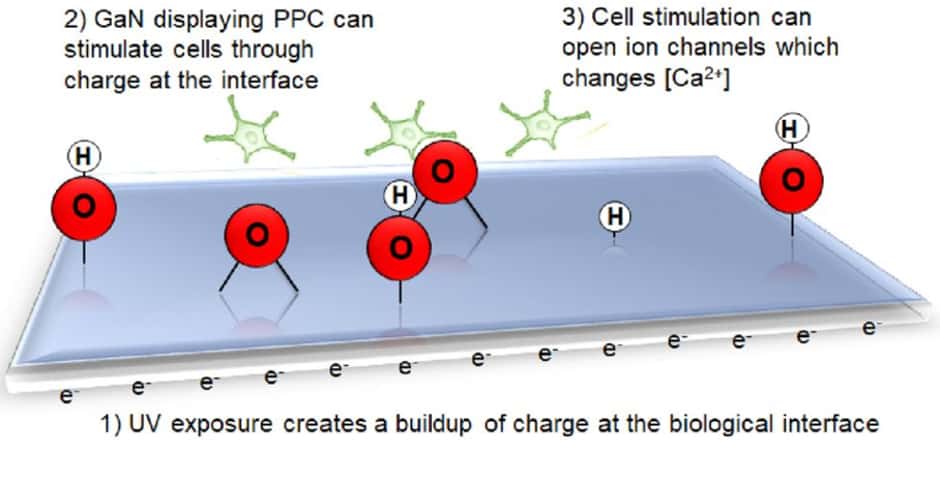Cell stimulation holds promise for bioelectronic interfaces
In what is claimed to be a first, researchers in North Carolina have used a material’s persistent photoconductivity to stimulate neurotype cells, an advance that could lead to bioelectronic interfaces.


A material that demonstrates persistent photoconductivity gains a negative charge on its surface when exposed to the right wavelength of light, and retains the charge when the light is removed. The correct wavelength of light, and how long the material retains its charge, varies in different materials.
Researchers know that an electric charge can stimulate a cell, but existing technologies for conducting related experiments can be invasive, time-consuming, or require specialised equipment.
“We wanted to take advantage of the electronic properties of the semiconductor gallium nitride, which is biocompatible, making it a true bioelectronic interface,” said Patrick Snyder, a PhD student at North Carolina State University (NC State) and lead author of a paper on the work. “The result is a faster, non-invasive way to stimulate cells that doesn’t require specialised equipment.”
According to NC State, the researchers exposed a gallium nitride substrate to ultraviolet (UV) light, creating a negative charge on its surface. Once the UV light was removed, researchers poured a solution containing PC12 neurotypic cells into the container with the substrate. The researchers then introduced a dye that allowed them to measure calcium levels in the PC12 cells.
Register now to continue reading
Thanks for visiting The Engineer. You’ve now reached your monthly limit of news stories. Register for free to unlock unlimited access to all of our news coverage, as well as premium content including opinion, in-depth features and special reports.
Benefits of registering
-
In-depth insights and coverage of key emerging trends
-
Unrestricted access to special reports throughout the year
-
Daily technology news delivered straight to your inbox










UK Enters ‘Golden Age of Nuclear’
The delay (nearly 8 years) in getting approval for the Rolls-Royce SMR is most worrying. Signifies a torpid and expensive system that is quite onerous...